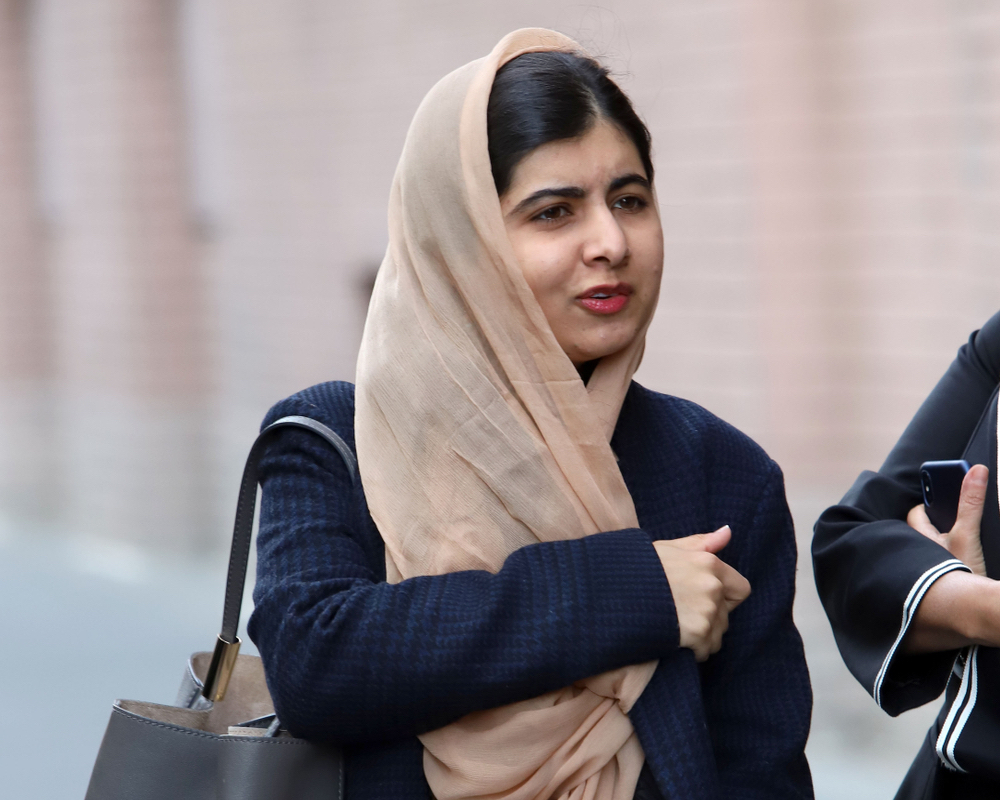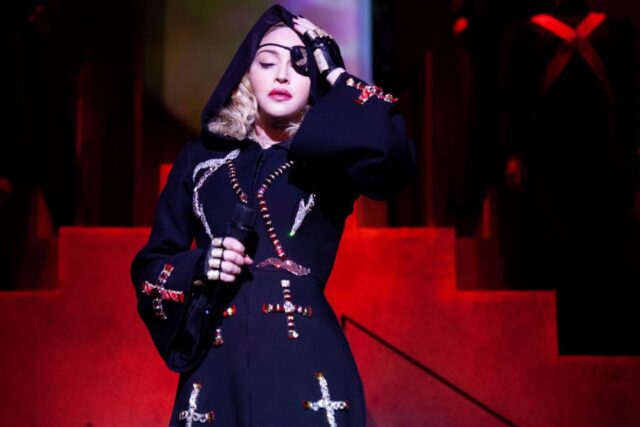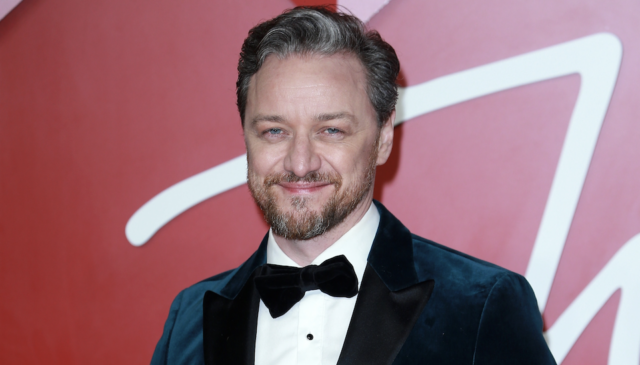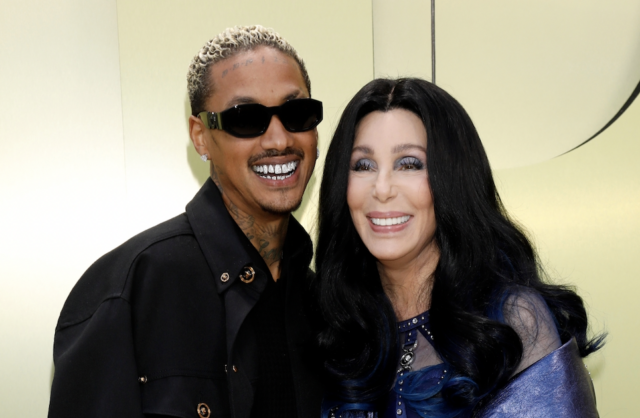Malala Yousafzai Looking Fearless for British Vogue, Revealing Her Future
23-year-old Pakistani activist and youngest Nobel Prize winner, Malala Yousafzai, dazzled in British Vogue’s July 2021 cover on June 1. She revealed the challenges of life’s everyday questions, as well as plans to spread her message around the world.
Malala showed her stunning cover photos on Instagram and wrote, “I know the power that a young girl carries in her heart when she has a vision and a mission – and I hope that every girl who sees this cover will know that she can change the world.” Having fought for girls’ education in her home country for almost 13 years, she showed the significance of Pakistani representation.
Malala began campaigning for Pakistani girls’ rights when she was 11-years-old because girls were prohibited from attending school under Taliban rule. When she refused to give up her education, she was shot by a Taliban gunman in 2012. Her attack only made her stronger. The activist released her autobiography, I Am Malala, launched the Malala Fund, won a Nobel Peace Prize at 17-years-old, graduated with honors from Oxford University, and reached many other achievements.
The advocate revealed that her future is unknown. Sitting down with Sirin Kale of British Vogue, she wondered, “Where do I live next? Should I continue to live in the UK, or should I move to Pakistan or another country? The second question is, who should I be living with? Should I live on my own? Should I live with my parents?” Every night Malala asks herself, “What am I going to do next?” After moving home to finish college last year due to the COVID-19 pandemic, she graduated jobless and uncertain about how to move forward.
Malala has spent her free time sleeping, reading, spending time with her family, and feeling uncertain about her next endeavor. However, she revealed one of her greatest passions: television. In March, she signed a deal with Apple TV+. She wants to make documentaries about important issues like women’s rights, but also comedies. She says, “I want these shows to be entertaining and the sort of thing I would watch. If I don’t laugh at them or enjoy them, I won’t put them on-screen.” She hopes her new project will give a voice to people from all backgrounds.
Referencing her cultural pride, Malala says that her headscarf is “A cultural symbol for us Pashtuns, so it represents where I come from. And Muslim girls or Pashtun girls or Pakistani girls, when we follow our traditional dress, we’re considered to be oppressed, or voiceless, or living under patriarchy. I want to tell everyone that you can have your own voice within your culture, and you can have equality in your culture.” She wants to return to Pakistan, but the authorities deem her a security concern. Her biggest fear is letting down the voiceless girls in Pakistan who look up to her, such as girls who can’t go to school and are forced to marry much older men. The role model says, “I care a lot about my work and I worry about how long it would take to reach the goals we have set. People say, ‘Malala, don’t worry, it’s not your responsibility, leaders should worry!’ But if I have the capacity to do something to keep raising awareness, then I should.”
To spread her feminist message, Malala doesn’t want to succumb to social media-driven activism. “We have associated activism with tweets. That needs to change, because Twitter is a completely different world.” She wants to actually instill change and work with people she admires, such as 18-year-old climate change activist Greta Thunberg and 21-year-old gun control advocate Emma González. She says, “I know the power that a young girl carries in her heart when she has a vision and a mission,” and believes that “You have to find a future for yourself.”
Fans showed their appreciation for Malala’s British Vogue cover and interview on Twitter.
In an interview about her Vogue cover, Malala revealed that Greta texts her for advice and I cannot stop thinking about how wholesome that is 🌟
— Amisssssssssssssssssree (@Anusreeisbleh) June 2, 2021
How do you feel when you see Malala on the cover of a famous American fashion magazine!
— Bakht Samar Khan 🇵🇰🇵🇸 (@SamarDreams) June 2, 2021
when the whole world is silent, even one voice becomes powerful !.#Malala
people are really asking what malala did to be put on the cover of Vogue? atp just say you hate women and go
— Kate🧈∞ (@7wonders_kate) June 2, 2021
Learn more about Malala Yousafzai’s inspiring story on her website. Follow her on Instagram for updates about her Apple TV+ partnership.





